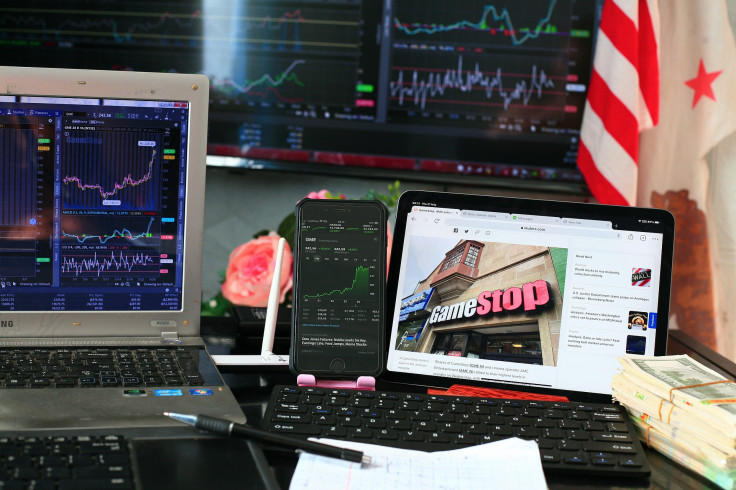2 Years On: The GameStop Saga - What Have We Learnt?
We're just over two years on from the GameStop short squeeze, an event that garnered international media attention and even its own Netflix documentary. The saga, at the height of the global pandemic, introduced many to the world of retail investing and signified the ultimate David vs Goliath story of humble retail investor verses Wall Street financial behemoths.

In January 2021, retail investors flocked en-masse to short squeeze the stock of GameStop following mass short-selling of its stock by hedge funds and short sellers. This squeeze saw the retailer's stock reach a pre-market value of over US$500 per share, 30 times the market valuation at the beginning of the same month.
Predominantly fuelled by online chat rooms on platforms like Reddit, the event attracted global media interest and ensured that the term retail investor was firmly engrained within the financial space.
From the point of view of an established trader and retail investor advocate, I think that first and foremost we learnt that retail investing cannot be ignored in a digital age. Many underappreciated the power of collective knowledge and pooling of resources to take on some of the largest financial players in the world... all in the midst of a global pandemic from the comfort of their own homes.
Many rightfully questioned the longevity of the phenomenon and whether retail investing is here to stay. Well, two years on from this event I think that answer is very clear: Retail investing is going nowhere.
Additionally and perhaps most importantly, I believe that the event highlighted the risk of investing both for retail investors and for established hedge funds and short sellers.
Trading is not a game.
Although you can partake in it from home via your smartphone or laptop, the financial aspect of it is very real and traders (whether established or new to this world) must exercise immense caution when executing these trades.
As the host of the world's number one global live day trading show, TraderTV Live, this is a fact we repeatedly tell our audience members and is something that renowned guests including the likes of Peter Schiff also disclose from the offset.
Linked to this is the need for accurate sources of information for retail investors without access to ultra-expensive trading room software. If listening to or reading the work of respected financial experts, they are a good primary source of information who (should) always disclose that their advice might not always yield positive results. Ultimately, if trading was this simple, everyone would be multi-millionaires.
The whole GameStop saga and specifically the role that brokerage firms like Robinhood played in it, also drew attention to an issue now at the centre of financial regulation – Payment for order flow (PFOF).
Without going into too much detail about the practice, it essentially means that investors might not always get the best price for their trades, something that financial experts have frequently drawn attention to and that is now a major subject of discussion with financial regulators across the world.
The US SEC for instance announced in December last year that it was proposing major changes to the PFOF system designed to benefit retail traders and promote enhanced competition.
Without the events of January 2021, it is likely that none of this would have happened. The GameStop saga has proved to be the catalyst for positive change while reminding the world that retail investing is firmly here to stay.
One of the principal outcomes of the saga, therefore, aside from the financial market establishment recognising the retail revolution that has taken hold, is that of regulation and accountability.
From the outdated method of PFOF to general regulation of stock-trading apps like Robinhood, regulation of such platforms is firmly in the crosshairs of global regulators like the US SEC and UK's FCA following the events.
For example, the Monetary Authority of Singapore (MAS) has moved to ban PFOF entirely from April this year due to 'conflicts of interests' which are 'likely to cause harm to customers'. As mentioned earlier, the US SEC has also proposed sweeping reforms to the practice, a move set to be mirrored by European states, while the UK's FCA has already banned PFOF altogether.
Accountability, power, regulation and education. These are four key areas that the GameStop saga of 2021 has catalysed change in. We are seeing enhanced regulation around the world for the likes of PFOF and brokerage firms. We are also seeing the continued growth of the retail investor community and further products designed to assist with this.
For me, the principal lesson learnt from the whole episode is that of risk. In this case, some of the most well-known hedge funds in the world lost massive amounts of capital, just like the hundreds of thousands of retail investors who got in at the wrong moment.
Making informed decisions before pressing the buy now button is essential for all traders and should be the principal take home from the events of January 2021.
© Copyright IBTimes 2024. All rights reserved.





















